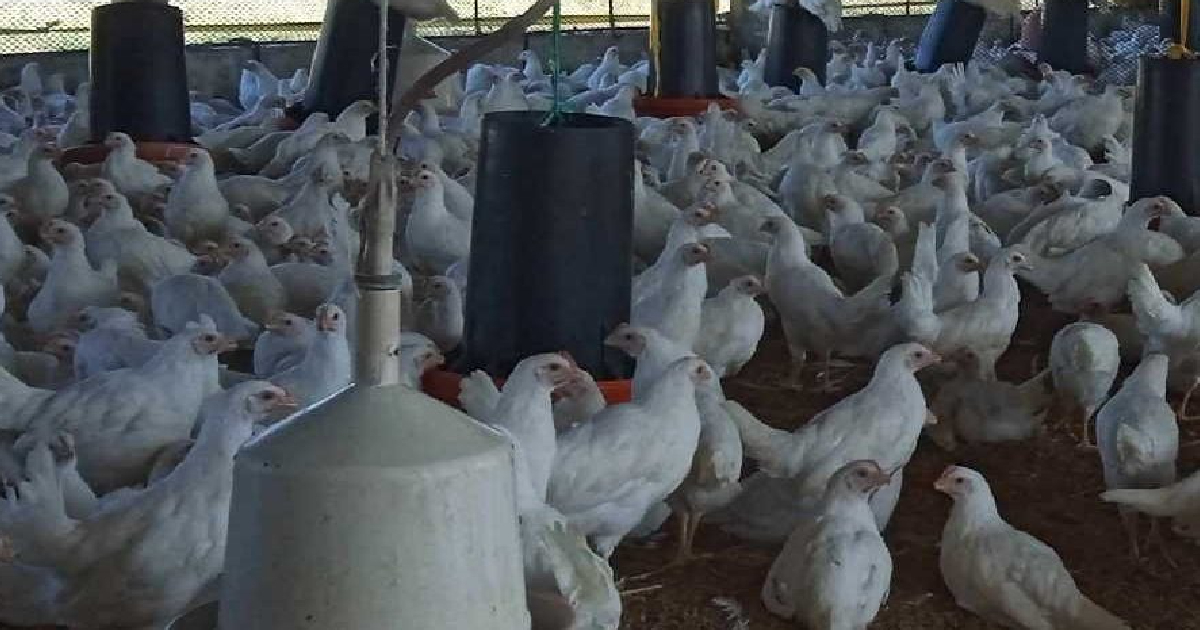Birds from the replacement units of the Empresa Avícola Sancti Spíritus located in Cabaiguán and Jatibonico are undergoing trials for a domestically produced vaccine aimed at preserving the flock.
"This is an experiment with a Cuban vaccine intended to achieve sovereignty in an area that has always been imported. Due to the country's limitations in acquiring it, there have been setbacks in advancing the replacements, delaying the flock in Cuba," said Alieski Quesada Molina, director of the entity, to the official newspaper Escambray.
The official assured that currently, "the animals are old because they cannot be kept without vaccination due to the risk of disease." The trial, taking place in the province of Sancti Spíritus, is being monitored by entities such as Labiofam, the producers of the vaccine.
He stated that the experiment focuses on measuring adverse reactions since vaccines have different testing phases before reaching clinical trials. The procedure includes vaccinating the animals on the day they hatch at the incubation plant.
"At certain times, tests have been conducted, and so far, all have yielded satisfactory results. There is another trial now around 90 to 100 days, a critical period for the animal, and it is also showing the expected results," said Quesada Molina.
Potential Benefits of the Vaccine
Cuban authorities aim to patent this product, which they claim would benefit the health and productivity of future laying hens.
Each year, the effects of avian influenza alert Cuban poultry producers, who are left vulnerable due to the scarcity of resources and supplies to prevent the disease and treat the animals, crucial for egg production for human consumption.
Last year, the National Center for Animal Health of the Ministry of Agriculture (MINAG) of Cuba confirmed the presence of avian influenza in wild birds at the Havana Zoo.
Although they assured that the disease was under control, all territories in the country were put on alert to avoid being affected. This danger is compounded by the lack of adequate nutrition for the animals. As a result, egg production in Cuba has plummeted by more than 50%.
In 2023, the lack of feed and funding to acquire the raw materials to manufacture it contributed to the absence of this product in the Cuban diet.
FAQs on Cuban Vaccine Trials for Poultry
Here are some frequently asked questions and answers about the ongoing vaccine trials for poultry in Cuba, focusing on the efforts to achieve self-sufficiency and improve animal health.
Why is Cuba conducting vaccine trials on poultry?
Cuba is conducting vaccine trials on poultry to achieve self-sufficiency in vaccine production, which has traditionally been imported. This effort aims to overcome the country's limitations in acquiring vaccines and improve the health and productivity of poultry.
Who is overseeing the vaccine trials in Cuba?
The trials are being overseen by entities such as Labiofam, which are responsible for producing the vaccine.
What are the expected outcomes of these vaccine trials?
The expected outcomes include measuring adverse reactions and achieving satisfactory results that will benefit the health and productivity of future laying hens.
How is the avian influenza situation being managed in Cuba?
The National Center for Animal Health of the Ministry of Agriculture of Cuba confirmed the presence of avian influenza in wild birds and has assured that the disease is under control, with all territories in the country on alert to avoid being affected.
